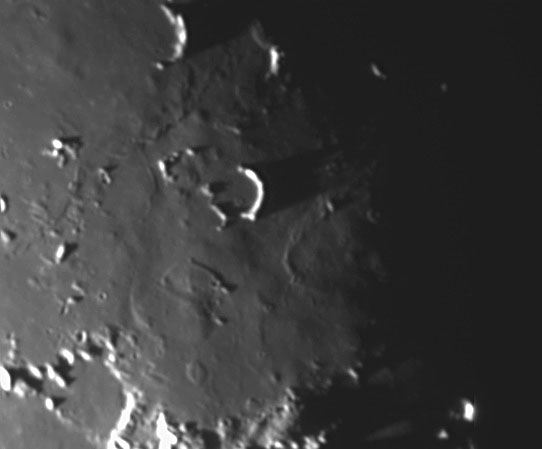A Lumpy Mare

Explanation:
NASA selected the maria as landing sites for early Apollo missions because everyone knows maria are smooth. But this low sun image by Jim Phillips shows that at least this part of Mare Tranquillitatis is peppered with dome-like hills and swells and linear ridges. But you ain't seen nothing! Mouseover the image to see it transformed (by my aggressive application of the Photoshop unsharp mask filter) into a lumpy terrain, like snow-covered haystacks. There are 15 to 20 of these broad lumps, each 12 to 15 km wide. Their heights and thus their slopes must be very low. Are these domes? A few might be interpreted that way, but I think these are a new kind of phenomena that has not been previously noticed. They are lower and wider than most domes and not a one has a summit pit. I assume that they are somehow related to the mare lava (rather than some buried structures), but I don't know how. Other interesting features are also visible in this image. South of the half crater Maskelyne F is a very narrow arcuate ridge (arrow) that does not look like a buried crater rim. Southeast of Maskelyne F is another arucate ridge structure (another arrow) that is also difficult to explain. Near the bottom of the image is a steep sided, flat-topped feature with an elongated summit depression (arrow) that may be a more classical dome - it is not hinted at in the Lunar Orbiter image. Inside the crater Maskelyne D are two small domes. And NW of Maskelyne F is a short trough that starts on one lump and continues off it. Because this image may show a new kind of lunar feature, I hope that similar high resolution and extremely low sun images will be taken for all mare areas to see if more lumps exist. Great job, Jim!
